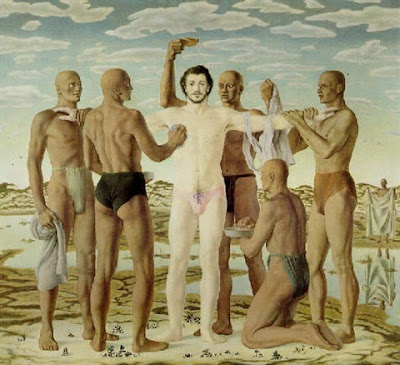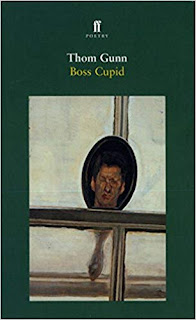Playtime. Andrew McMillan
The Canadian literary critic, Terry Goldie, once posed a provocative question by way of a statement: does the homosexual, when not having sex, have an identity? If homosexual is an identity based on sexual activity, what exactly is the homosexual outside the sexual act? This tongue-in-cheek approach suggests a problem for the gay poet: there is a compulsion to write about gay sex so that identity is remembered and demonstrated. This approach underlies McMillan's book second book of poetry. Rather than move on from his triumphant Physical , Playtime moves backwards into adolescence and the birth of sexual activity. Out of forty poems, nearly half are about sexual play. Of course, this fits one interpretation of playtime, and enlarges on the whimsical cover. The trades description act is not broken. At the same time, it reduces to the volume to a banal level: I am gay and this is what I do.
Playtime has received wonderful reviews, mainly from female critics, and they have managed to find wondrous lyrical play within the poems, identifying fissures in McMillan's poetic lines and observing the escape of emotion and blood. To me, they seem to have avoided the obvious: Playtime goes where many gay poets have gone before, and the poems, though dextrously written, hardly stretch the imagination. Poems tread familiar territory: there is the partner that is HIV positive and causes a visit to a sexual health clinic; there is the dash to view internet porn as a way of returning energy to sex; there is the overworked resemblance between physical sport and sexual exertion. There are poems where unusual meetings, "Phonebox", offer uncertainty and something tantalising and new. And poems, such as "Anaphora Penises", where the writing is pretentiously dull:
when you've seen one you've seen them all I think
you're wrong each one is a fingerprint unique
each with its own way of being in the world ...
According to the blurb from Cape Poetry, Playtime tells us stories that "some of us ... have never found the courage to read before." And perhaps that is the problem for those of us who have had the courage to read poetry from the margins-- the shock tactics aren't shocking. The "vital ... confessions" are more a cause of embarrassment than "spiritual" revelation. I was left hoping that the bell would ring and end playtime early, so that lessons might begin.




Comments